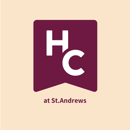The recent rise in Covid-19 cases throughout the United Kingdom has resulted in general public uncertainty as lockdown restrictions have begun to be reinstated. In Scotland, there are currently over 449 people in the hospital and 35 people in intensive care confirmed with Covid-19. Even more concerning, the positive test rate is now up to nearly 14%. The number of positive tests has rapidly increased throughout September, with large cities such as Glasgow and Edinburgh becoming hotspots for the virus.
According to First Minister Nicola Sturgeon, the return of students to colleges and universities is likely to have the largest impact on the increased transmission of Covid-19 in Scotland. Universities, like the rest of Scotland, have recently been placed under copious restrictions, including bans on visiting other households, and a general 6pm curfew on restaurants, bars, and pubs. In addition, students who break the restrictions may be subject to disciplinary action – possibly including expulsion.
Regardless, these restrictions may not be enough to curb the rise in cases throughout the country. A spokesperson for Northumbria University recently confirmed that 770 students have tested positive for the virus since their return to campus in September, and that 78 have been symptomatic. Moreover, there have been 94 positive cases at Newcastle University and over 200 cases at Sheffield University. Positive cases have continued to rise as students arrived back to their university campuses throughout September. There are now approximately 56 universities throughout the United Kingdom that have had confirmed cases of Covid, and over 2,500 total positive cases at universities.
With a large portion of the discussion surrounding university students and their actions as Covid numbers rise throughout Scotland, there has been a burgeoning debate on whether students are to blame. On September 18, the University of St Andrews Principal Sally Mapstone asked students to observe a voluntary weekend lockdown. Following the weekend, a further email was sent urging students to limit interactions with those outside their household groups.
While many students abided by the voluntary lockdown, there has been protest against how the university has handled the pandemic. Before the start of the 2020-21 academic year, the university encouraged students to return to town, stating that it would deliver dual teaching as much as possible and that students should return at the start of the term. If students chose to study remotely, they needed to give a specific reason for doing so. Contradictory to its push for students to travel back to town, in August the University announced that only “essential” classes would be in-person. Many students were angered by this announcement, feeling they had been misled by the university, particularly students who would have preferred to study online had they not felt pressured by the university to return. Similar incidents have occurred at universities throughout Scotland and the United Kingdom, with students being informed that their classes would be online only after having paid hundreds of pounds for accommodation.
The decision for students to return to their university towns and resume in-person teaching is not largely supported by the general public either. According to a poll taken by the University and College Union, 57% of residents in English university cities and towns believe that the large in-person return of students will lead to a lockdown. Furthermore, according to the same study only 35% of those polled agreed that in-person learning should continue where possible. The UCU’s polling has further indicated that more than two times the amount of people will blame the government for local lockdowns in university towns than the students that have returned.
Despite Covid-19 cases rising throughout Scotland as university towns and cities once again become packed with students, students cannot be solely blamed for this surge. There are numerous contributing factors to the recent uptick in Covid cases – from universities’ lack of communication to government policies. Clearly not one party or factor alone can be held responsible. Students should make an effort to socially distance and follow government safety guidelines, and universities ought to allow remote learning where possible and strive for open communication with their student bodies. Most importantly, it is crucial in such a precarious time for students, residents, and institutions alike to practice understanding, communication, and patience as society seeks to adjust amidst the changes that Covid has brought.



